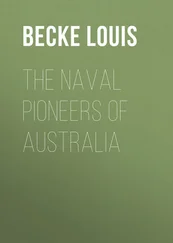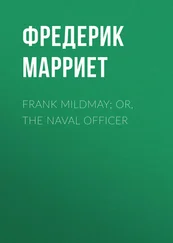Theodore Roosevelt - The Naval War of 1812
Здесь есть возможность читать онлайн «Theodore Roosevelt - The Naval War of 1812» — ознакомительный отрывок электронной книги совершенно бесплатно, а после прочтения отрывка купить полную версию. В некоторых случаях можно слушать аудио, скачать через торрент в формате fb2 и присутствует краткое содержание. Жанр: unrecognised, на английском языке. Описание произведения, (предисловие) а так же отзывы посетителей доступны на портале библиотеки ЛибКат.
- Название:The Naval War of 1812
- Автор:
- Жанр:
- Год:неизвестен
- ISBN:нет данных
- Рейтинг книги:5 / 5. Голосов: 1
-
Избранное:Добавить в избранное
- Отзывы:
-
Ваша оценка:
- 100
- 1
- 2
- 3
- 4
- 5
The Naval War of 1812: краткое содержание, описание и аннотация
Предлагаем к чтению аннотацию, описание, краткое содержание или предисловие (зависит от того, что написал сам автор книги «The Naval War of 1812»). Если вы не нашли необходимую информацию о книге — напишите в комментариях, мы постараемся отыскать её.
The Naval War of 1812, written by the former president Theodore Roosevelt, deals with battles and naval technology used during the War of 1812 between the United States and the Great Britain. Roosevelt's history is considered as one of the best on this particular topic and it had a great impact on the formation of the modern day U.S. Navy. At the beginning, the author gives the insight of the political and social conditions in Great Britain and America prior to the war. Roosevelt, then, discusses the naval war on both the Atlantic Ocean and the Great Lakes. Finally, the last chapter covers the Battle of New Orleans, the final major battle of the War of 1812.
The Naval War of 1812 — читать онлайн ознакомительный отрывок
Ниже представлен текст книги, разбитый по страницам. Система сохранения места последней прочитанной страницы, позволяет с удобством читать онлайн бесплатно книгу «The Naval War of 1812», без необходимости каждый раз заново искать на чём Вы остановились. Поставьте закладку, и сможете в любой момент перейти на страницу, на которой закончили чтение.
Интервал:
Закладка:
The first point to be remembered in order to write a fair account of this war is that the difference in fighting skill, which certainly existed between the two parties, was due mainly to training, and not to the nature of the men. It seems certain that the American had in the beginning somewhat the advantage, because his surroundings, partly physical and partly social and political, had forced him into habits of greater self-reliance. Therefore, on the average, he offered rather the best material to start with; but the difference was very slight, and totally disappeared under good training. The combatants were men of the same race, differing but little from one another. On the New England coast the English blood was as pure as in any part of Britain; in New York and New Jersey it was mixed with that of the Dutch settlers—and the Dutch are by race nearer to the true old English of Alfred and Harold than are, for example, the thoroughly anglicized Welsh of Cornwall. Otherwise, the infusion of new blood into the English race on this side of the Atlantic has been chiefly from three sources—German, Irish, and Norse; and these three sources represent the elemental parts of the composite English stock in about the same proportions in which they were originally combined,—mainly Teutonic, largely Celtic, and with a Scandinavian admixture. The descendant of the German becomes as much an Anglo-American as the descendant of the Strathclyde Celt has already become an Anglo-Briton. Looking through names of the combatants it would be difficult to find any of one navy that could not be matched in the other—Hull or Lawrence, Allen, Perry, or Stewart. And among all the English names on both sides will be found many Scotch, Irish, or Welsh—Macdonough, O'Brien, or Jones. Still stranger ones appear: the Huguenot Tattnall is one among the American defenders of the Constellation , and another Huguenot Tattnall is among the British assailants at Lake Borgne. It must always be kept in mind that the Americans and the British are two substantially similar branches of the great English race, which both before and after their separation have assimilated, and made Englishmen of many other peoples. 15 The lessons taught by the war can hardly be learned unless this identity is kept in mind. 16
To understand aright the efficiency of our navy, it is necessary to take a brief look at the character and antecedents of the officers and men who served in it.
When war broke out the United States Navy was but a few years old, yet it already had a far from dishonorable history. The captains and lieutenants of 1812 had been taught their duties in a very practical school, and the flag under which they fought was endeared to them already by not a few glorious traditions—though these, perhaps, like others of their kind, had lost none of their glory in the telling. A few of the older men had served in the war of the Revolution, and all still kept fresh in mind the doughty deeds of the old-time privateering war craft. Men still talked of Biddle's daring cruises and Barney's stubborn fights, or told of Scotch Paul and the grim work they had who followed his fortunes. Besides these memories of an older generation, most of the officers had themselves taken part, when younger in years and rank, in deeds not a whit less glorious. Almost every man had had a share in some gallant feat, to which he, in part at least, owed his present position. The captain had perhaps been a midshipman under Truxtun when he took the Vengeance , and had been sent aboard the captured French frigate with the prize-master; the lieutenant had borne a part in the various attacks on Tripoli, and had led his men in the desperate hand-to-hand fights in which the Yankee cutlass proved an overmatch for the Turkish and Moorish scimitars. Nearly every senior officer had extricated himself by his own prowess or skill from the dangers of battle or storm; he owed his rank to the fact that he had proved worthy of it. Thrown upon his own resources, he had learned self-reliance; he was a first-rate practical seaman, and prided himself on the way his vessel was handled. Having reached his rank by hard work, and knowing what real fighting meant, he was careful to see that his men were trained in the essentials of discipline, and that they knew how to handle the guns in battle as well as polish them in peace. Beyond almost any of his countrymen, he worshipped the "Gridiron Flag," and, having been brought up in the Navy, regarded its honor as his own. It was, perhaps, the Navy alone that thought itself a match, ship against ship, for Great Britain. The remainder of the nation pinned its faith to the army, or rather to that weakest of weak reeds, the militia. The officers of the navy, with their strong esprit de corps, their jealousy of their own name and record, and the knowledge, by actual experience, that the British ships sailed no faster and were no better handled than their own, had no desire to shirk a conflict with any foe, and having tried their bravery in actual service, they made it doubly formidable by cool, wary skill. Even the younger men, who had never been in action, had been so well trained by the tried veterans over them that the lack of experience was not sensibly felt.
The sailors comprising the crews of our ships were well worthy of their leaders. There was no better seaman in the world than American Jack; he had been bred to his work from infancy, and had been off in a fishing dory almost as soon as he could walk. When he grew older, he shipped on a merchant-man or whaler, and in those warlike times, when our large merchant-marine was compelled to rely pretty much on itself for protection, each craft had to be well handled; all who were not were soon weeded out by a process of natural selection, of which the agents were French picaroons, Spanish buccaneers, and Malay pirates. It was a rough school, but it taught Jack to be both skilful and self-reliant; and he was all the better fitted to become a man-of-war's man, because he knew more about fire-arms than most of his kind in foreign lands. At home he had used his ponderous ducking gun with good effect on the flocks of canvasbacks in the reedy flats of the Chesapeake, or among the sea-coots in the rough water off the New England cliffs; and when he went on a sailing voyage the chances were even that there would be some use for the long guns before he returned, for the American merchant sailor could trust to no armed escort.
The wonderful effectiveness of our seamen at the date of which I am writing as well as long subsequently to it was largely due to the curious condition of things in Europe. For thirty years all the European nations had been in a state of continuous and very complicated warfare, during the course of which each nation in turn fought almost every other, England being usually at loggerheads with all. One effect of this was to force an enormous proportion of the carrying trade of the world into American bottoms. The old Massachusetts town of Salem was then one of the main depots of the East India trade; the Baltimore clippers carried goods into the French and German ports with small regard to the blockade; New Bedford and Sag Harbor fitted out whalers for the Arctic seas as well as for the South Pacific; the rich merchants of Philadelphia and New York sent their ships to all parts of the world; and every small port had some craft in the coasting trade. On the New England seaboard but few of the boys would reach manhood without having made at least one voyage to the Newfoundland Banks after codfish; and in the whaling towns of Long Island it used to be an old saying that no man could marry till he struck his whale. The wealthy merchants of the large cities would often send their sons on a voyage or two before they let them enter their counting-houses. Thus it came about that a large portion of our population was engaged in seafaring pursuits of a nature strongly tending to develop a resolute and hardy character in the men that followed them. The British merchant-men sailed in huge convoys, guarded by men-of-war, while, as said before, our vessels went alone, and relied for protection on themselves. If a fishing smack went to the Banks it knew that it ran a chance of falling in with some not over-scrupulous Nova Scotian privateer. The barques that sailed from Salem to the Spice Islands kept their men well trained both at great guns and musketry, so as to be able to beat off either Malay proas, or Chinese junks. The New York ships, loaded for the West Indies, were prepared to do battle with the picaroons that swarmed in the Spanish main; while the fast craft from Baltimore could fight as well as they could run. Wherever an American seaman went, he not only had to contend with all the legitimate perils of the sea, but he had also to regard almost every stranger as a foe. Whether this foe called himself pirate or privateer mattered but little. French, Spaniards, Algerines, Malays, from all alike our commerce suffered, and against all, our merchants were forced to defend themselves. The effect of such a state of things, which made commerce so remunerative that the bolder spirits could hardly keep out of it, and so hazardous that only the most skilful and daring could succeed in it, was to raise up as fine a set of seamen as ever manned a navy. The stern school in which the American was brought up, forced him into habits of independent thought and action which it was impossible that the more protected Briton could possess. He worked more intelligently and less from routine, and while perfectly obedient and amenable to discipline, was yet able to judge for himself in an emergency. He was more easily managed than most of his kind—being shrewd, quiet, and, in fact, comparatively speaking, rather moral than otherwise; if he was a New Englander, when he retired from a sea life he was not unapt to end his days as a deacon. Altogether there could not have been better material for a fighting crew than cool, gritty American Jack. Moreover, there was a good nucleus of veterans to begin with, who were well fitted to fill the more responsible positions, such as captains of guns, etc. These were men who had cruised in the little Enterprise after French privateers, who had been in the Constellation in her two victorious fights, or who, perhaps, had followed Decatur when with only eighty men he cut out the Philadelphia , manned by fivefold his force and surrounded by hostile batteries and war vessels,—one of the boldest expeditions of the kind on record.
Читать дальшеИнтервал:
Закладка:
Похожие книги на «The Naval War of 1812»
Представляем Вашему вниманию похожие книги на «The Naval War of 1812» списком для выбора. Мы отобрали схожую по названию и смыслу литературу в надежде предоставить читателям больше вариантов отыскать новые, интересные, ещё непрочитанные произведения.
Обсуждение, отзывы о книге «The Naval War of 1812» и просто собственные мнения читателей. Оставьте ваши комментарии, напишите, что Вы думаете о произведении, его смысле или главных героях. Укажите что конкретно понравилось, а что нет, и почему Вы так считаете.












